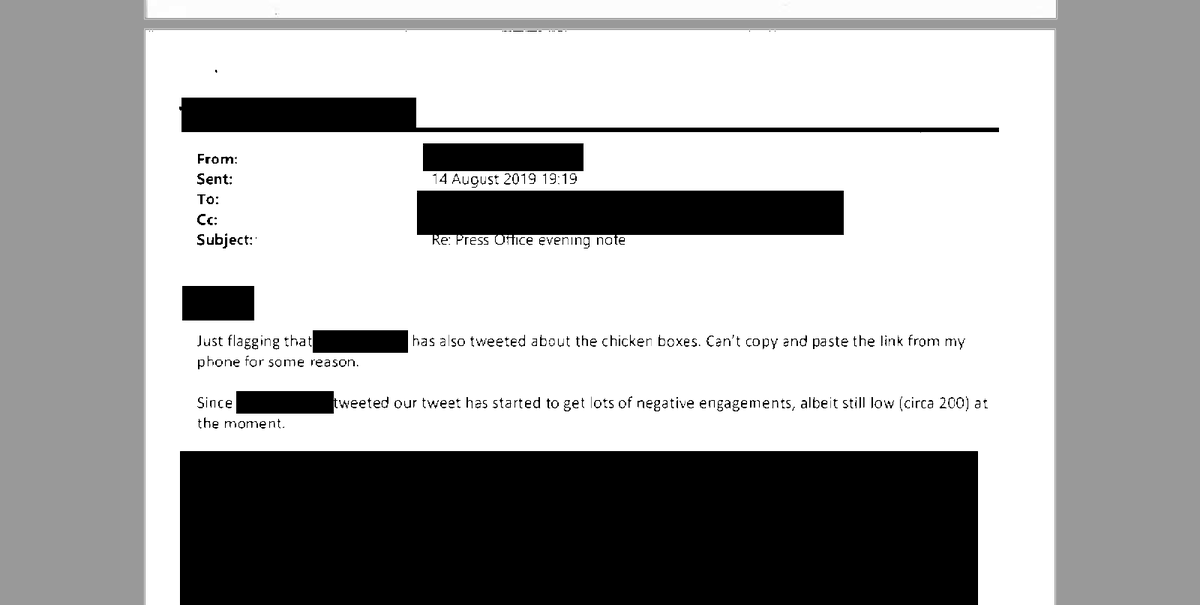
For some non-Covid news, and as a bit of recent political history, I’ve been released more than 100 pages of internal press office communications relating to the Home Office’s fried chicken box saga.
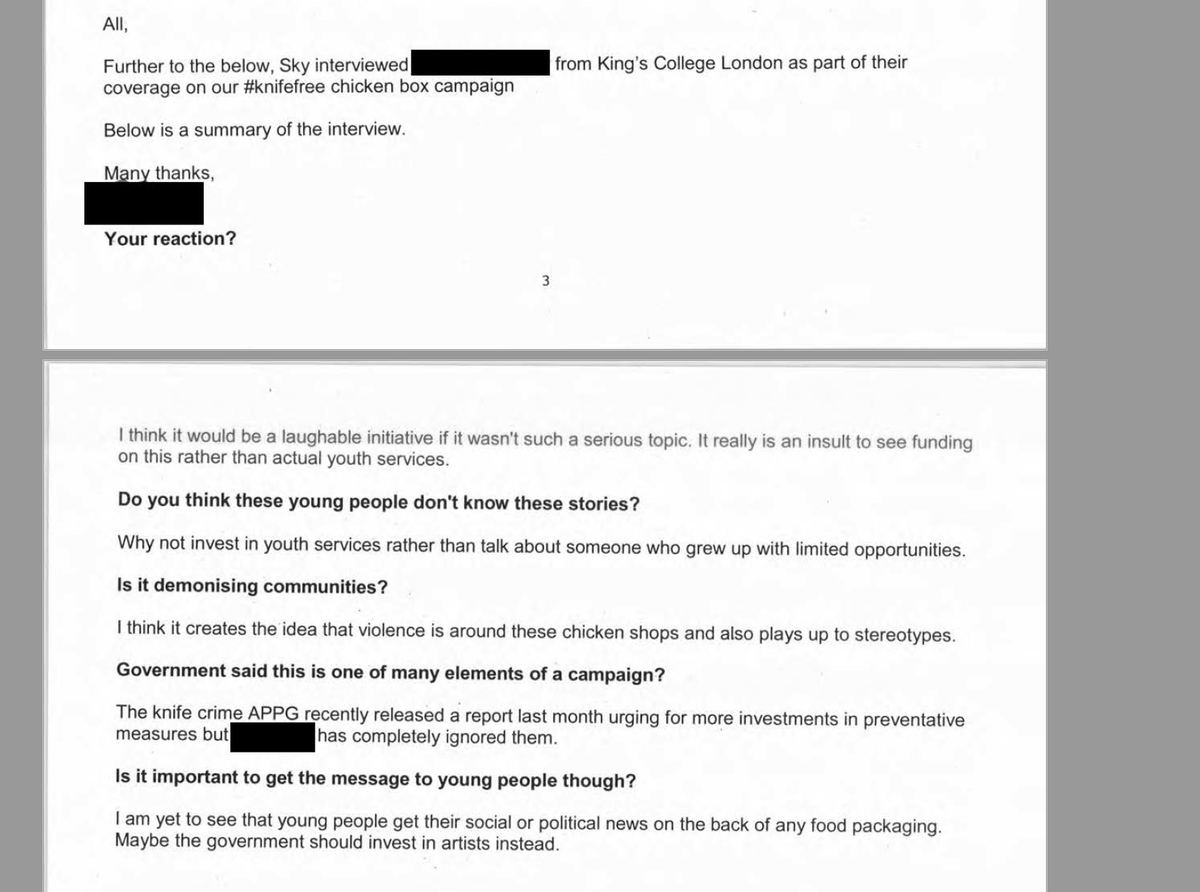

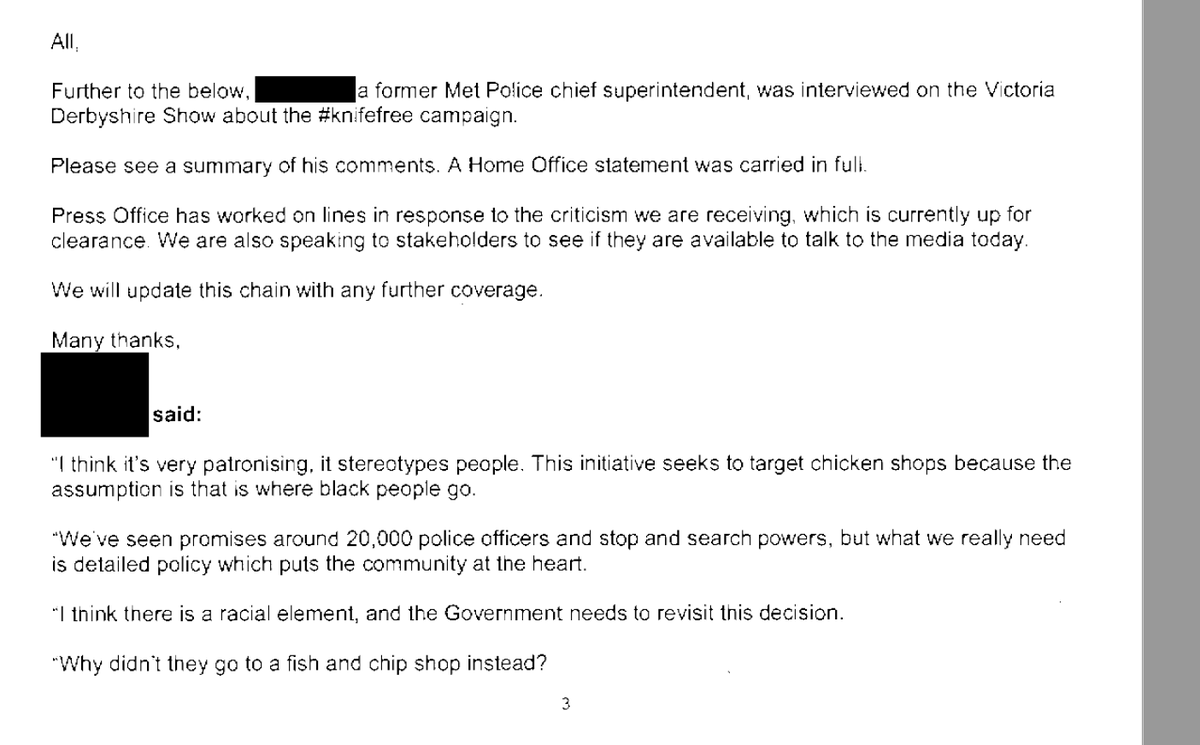





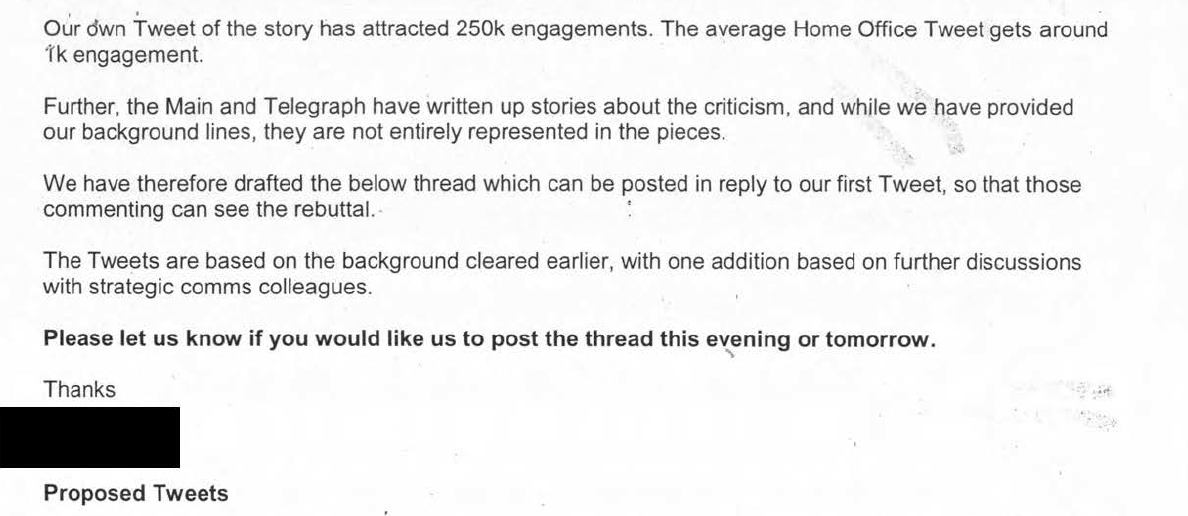



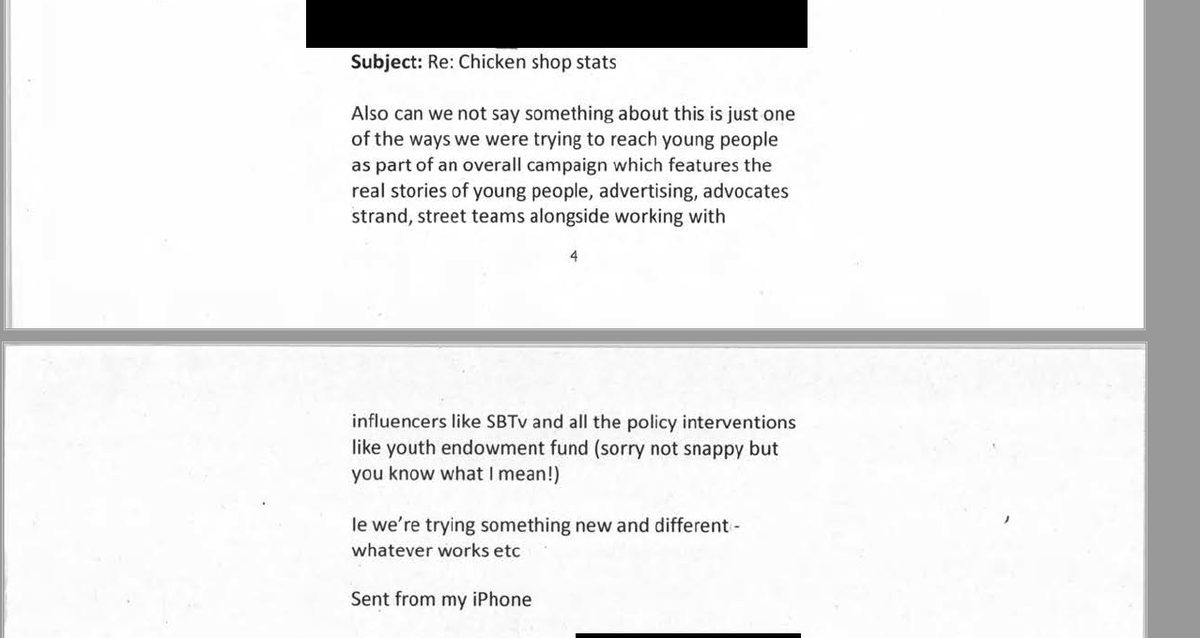
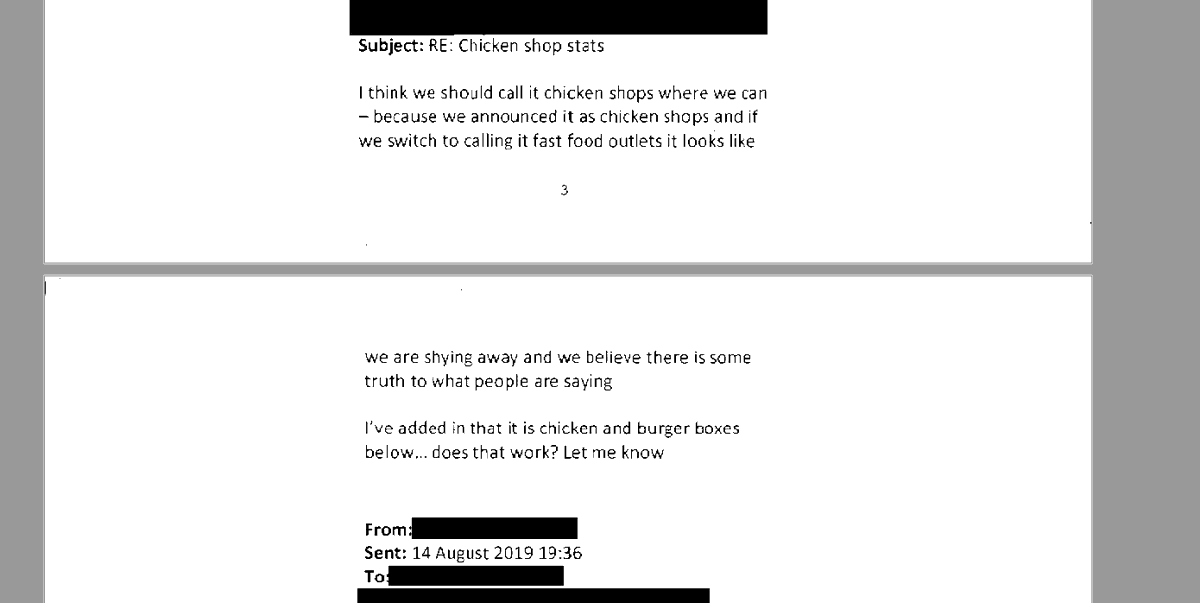



More from News
This week marks 12 months since Josephine Cashman supplied Andrew Bolt with a letter falsely attributed to a Yolngu lawman that Bolt published via NewsCorp on Jan 26 as parcel of his persecution of Bruce Pascoe. Cashman & Bolt still haven’t provided a satisfactory explanation
Terry Yumbulul didn’t write the letter and didn’t agree with its content. He said so himself in a video published the next day https://t.co/IJ6ricZeRi and in a written statement published later the same day

The weird thing was, it soon emerged that large sections of the letter had been cribbed from other sources. Weird because as a Yolngu lawman, Terry didn’t need to borrow his knowledge from unrelated, alternate sources ... pretty much verbatim
The fallout was swift. Bolt was compelled to do a correction on his column and Cashman was just as swiftly dumped from her position of the Morrison government’s Senior Advisory Group for an Indigenous Voice to Government
There was no apology from either of them or from NewsCorp tho, and with the assistance of Sky News After Dark they desperately attempted to obfuscate the reality that everybody involved had been caught out and left red faced
Terry Yumbulul didn’t write the letter and didn’t agree with its content. He said so himself in a video published the next day https://t.co/IJ6ricZeRi and in a written statement published later the same day

The weird thing was, it soon emerged that large sections of the letter had been cribbed from other sources. Weird because as a Yolngu lawman, Terry didn’t need to borrow his knowledge from unrelated, alternate sources ... pretty much verbatim
The fallout was swift. Bolt was compelled to do a correction on his column and Cashman was just as swiftly dumped from her position of the Morrison government’s Senior Advisory Group for an Indigenous Voice to Government
There was no apology from either of them or from NewsCorp tho, and with the assistance of Sky News After Dark they desperately attempted to obfuscate the reality that everybody involved had been caught out and left red faced
.@louiscasiano from @FoxNews reached out to ask if we are actually planning on contaminating the hotel rooms of Proud Boys with bedbugs. The short answer is no, we don't even know if that's possible. But here's our full response.

That post was clearly satire. We have no idea how one would actually go about the activity that was suggested.
What is not satire are the numerous death threats that were sent to us by Trump supporters in the lead up to the November election.
Here are a few tweets depicting detailed and credible death threats that you didn’t ask for comment on:
https://t.co/UiI12M0Aey.
https://t.co/PPe75XWImX
https://t.co/4Ia8659wK8
https://t.co/n5ov6R8Gyh
Each of those tweets includes the email address of the sender. We wish you luck in reaching out to them for comment.
Further, the hate crimes committed by the Proud Boys during their last visit to DC were not satire. A marauding band of drunk white nationalists stormed through our city, tearing down and burning religious symbols declaring respect for Black lives.

That post was clearly satire. We have no idea how one would actually go about the activity that was suggested.
What is not satire are the numerous death threats that were sent to us by Trump supporters in the lead up to the November election.
Here are a few tweets depicting detailed and credible death threats that you didn’t ask for comment on:
https://t.co/UiI12M0Aey.
https://t.co/PPe75XWImX
https://t.co/4Ia8659wK8
https://t.co/n5ov6R8Gyh
Yup. They have no interest in public safety. Inspector Glover is doing everything he can to support @realDonaldTrump's coup. @MayorBowser get your cops in line. pic.twitter.com/VAAu58v7N5
— ShutDownDC (@ShutDown_DC) November 15, 2020
Each of those tweets includes the email address of the sender. We wish you luck in reaching out to them for comment.
Further, the hate crimes committed by the Proud Boys during their last visit to DC were not satire. A marauding band of drunk white nationalists stormed through our city, tearing down and burning religious symbols declaring respect for Black lives.
You May Also Like
To people who are under the impression that you can get rich quickly by working on an app, here are the stats for https://t.co/az8F12pf02
📈 ~12000 vistis
☑️ 109 transactions
💰 353€ profit (285 after tax)
I have spent 1.5 months on this app. You can make more $ in 2 days.
🤷♂️

I'm still happy that I launched a paid app bcs it involved extra work:
- backend for processing payments (+ permissions, webhooks, etc)
- integration with payment processor
- UI for license activation in Electron
- machine activation limit
- autoupdates
- mailgun emails
etc.
These things seemed super scary at first. I always thought it was way too much work and something would break. But I'm glad I persisted. So far the only problem I have is that mailgun is not delivering the license keys to certain domains like https://t.co/6Bqn0FUYXo etc. 👌
omg I just realized that me . com is an Apple domain, of course something wouldn't work with these dicks
📈 ~12000 vistis
☑️ 109 transactions
💰 353€ profit (285 after tax)
I have spent 1.5 months on this app. You can make more $ in 2 days.
🤷♂️

I'm still happy that I launched a paid app bcs it involved extra work:
- backend for processing payments (+ permissions, webhooks, etc)
- integration with payment processor
- UI for license activation in Electron
- machine activation limit
- autoupdates
- mailgun emails
etc.
These things seemed super scary at first. I always thought it was way too much work and something would break. But I'm glad I persisted. So far the only problem I have is that mailgun is not delivering the license keys to certain domains like https://t.co/6Bqn0FUYXo etc. 👌
omg I just realized that me . com is an Apple domain, of course something wouldn't work with these dicks
To people who are under the impression that you can get rich quickly by working on an app, here are the stats for https://t.co/az8F12pf02
📈 ~12000 vistis
☑️ 109 transactions
💰 353€ profit (285 after tax)
I have spent 1.5 months on this app. You can make more $ in 2 days.
🤷♂️

I'm still happy that I launched a paid app bcs it involved extra work:
- backend for processing payments (+ permissions, webhooks, etc)
- integration with payment processor
- UI for license activation in Electron
- machine activation limit
- autoupdates
- mailgun emails
etc.
These things seemed super scary at first. I always thought it was way too much work and something would break. But I'm glad I persisted. So far the only problem I have is that mailgun is not delivering the license keys to certain domains like https://t.co/6Bqn0FUYXo etc. 👌
omg I just realized that me . com is an Apple domain, of course something wouldn't work with these dicks
📈 ~12000 vistis
☑️ 109 transactions
💰 353€ profit (285 after tax)
I have spent 1.5 months on this app. You can make more $ in 2 days.
🤷♂️

I'm still happy that I launched a paid app bcs it involved extra work:
- backend for processing payments (+ permissions, webhooks, etc)
- integration with payment processor
- UI for license activation in Electron
- machine activation limit
- autoupdates
- mailgun emails
etc.
These things seemed super scary at first. I always thought it was way too much work and something would break. But I'm glad I persisted. So far the only problem I have is that mailgun is not delivering the license keys to certain domains like https://t.co/6Bqn0FUYXo etc. 👌
omg I just realized that me . com is an Apple domain, of course something wouldn't work with these dicks


















